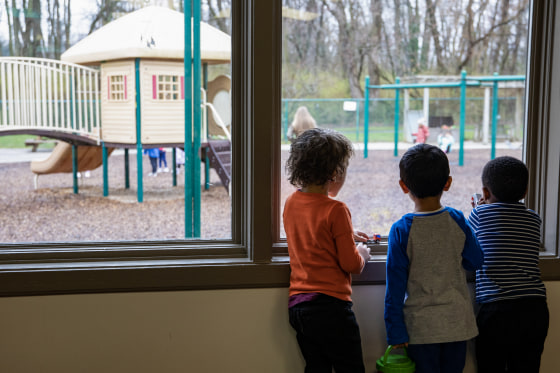
According to a National Head Start Association survey, dozens of Head Start programs—which offer low-income children childcare and preschool education—have been unable to obtain previously authorized federal funding, putting some programs in danger of closing their doors in the near future.
The programs claim that since a federal funding freeze was declared in the second week of the Trump administration, they have not been able to access the money to cover costs such as payroll and electricity. An Office of Management and Budget document that initiated the freeze last week was swiftly withdrawn.
A judge delayed the action amid a legal challenge to the freeze, and the White House stated that the freeze shouldn’t have harmed Head Start programs. However, according to the report, funding delays have been experienced by more than 45 organizations reaching 20,000 children across 23 states.
According to the group, several programs have had to temporarily close because they are unable to pay their personnel, and others could be in danger in the days ahead. It also follows a larger trend that in the early days of the Trump administration, some NGOs who depend on federal funding were unable to obtain it.
Although the cause of this delay is still unknown, it needs to be fixed right away or thousands of families and their kids risk losing the vital early care and educational services they need to work, attend school, and grow, according to a statement from Yasmina Vinci, executive director of the National Head Start Association.
A request for comment on the funding delays was not immediately answered by the Administration for Children and Families, a division of the Department of Health and Human Services that manages Head Start financing.
For staff and families, the funding disruptions might have far-reaching effects.
Since last week, a program in the isolated Olympic Peninsula of Washington state that assists 100 children—12 percent of whom are homeless—has been unable to receive funds to cover their expenses. Joel Ryan, executive director of the Washington State Association of Head Start and the Early Childhood Education and Assistance Program, stated that the program is still receiving notifications stating that the monies are awaiting clearance.
They’re starting to worry a lot about their ability to pay their payments. In addition to providing childcare for these low-income children and supporting their families, would they be able to pay their employees? Ryan stated.
According to Ryan, not all of his state’s services are being impacted by the financing problems. As an alternative, it’s more akin to a rolling blackout, leaving daycare providers unsure of their ability to pay their employees that week or pay their rent or other bills. According to him, the great majority of Washington programs rely entirely on government grants for funding and have no other options for funding.
Although a number of Washington programs warned families last week that they could have to close, all of the state’s programs have managed to remain open thus far.
However, Ryan claimed to have spoken with a program that has been awaiting money availability since last Wednesday in order to meet Friday payroll deadlines.
According to the National Head Start Association, at least one Head Start program in Wisconsin had to temporarily close but reopened on Wednesday after receiving money again.
According to Lauri Morrison-Frichtl, executive director of the Illinois Head Start Association, at least four Head Start organizations in Illinois have been unable to obtain their funds. If the problem isn’t fixed, two of those programs could have to close in the next several days.
“This is terrible, these are families are the most at risk, the most vulnerable across across our state, and they depend on us for many services,” Morrison-Frichtl said. “We provide two-thirds of the daily dietary needs for some of our kids. Families rely on us to get them to work and to provide a safe, nurturing, and educational environment for their children.
Ryan claims that the event has shaken the early childhood education community about what might happen to their programs in the long run, even if the funding issue is overcome.
He stated that there is a great deal of worry that the problems in the Trump administration are just getting started.
